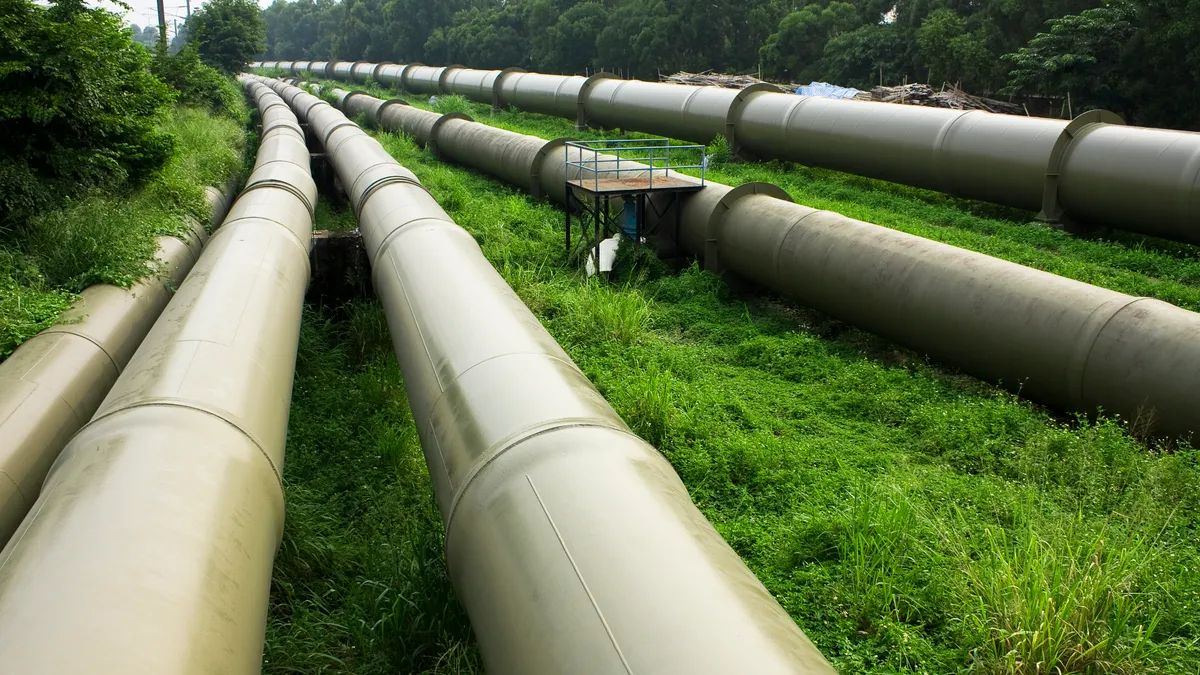Dive Brief:
- The Department of Energy's Inspector General on Wednesday released a report calling on the Federal Energy Regulatory Commission to enhance the transparency of its process for evaluating interstate pipeline applications.
- The IG report said FERC should improve information sharing on pipeline applications with stakeholders, including upgrading its online "eLibrary" portal and better track comments throughout the process. It did not report any violations of law or evidence that pipeline applications had been inappropriately approved.
- FERC Chairman Kevin McIntyre said the agency will respond to each of the filings with plans to improve transparency. The commission is currently reviewing its pipeline approval methodology for the first time since 1999.
Dive Insight:
The DOE Inspector General report could give credence to claims by FERC critics that the agency does not properly weigh the environmental risks of pipeline development in its approval process.
The report faults FERC for not having a consistent methodology for tracking comments. Without that, authors wrote, "we did not verify to what degree comments received by FERC were considered, aggregated, and reflected in the environmental documents or final orders for the certificate applications during our review."
"The lack of a consistent methodology could increase the risk that FERC may not address significant and impactful public comments in the environmental document or final order," the report concludes.
The IG report also dings FERC for its "eLibrary" — the electronic portal used to access comments and orders on every FERC docket — saying investigators were "unable to locate information in eLibrary without the direct assistance of FERC officials."
The access and transparency issues occured in part, regulators wrote, because FERC had not specifically designed its public-facing systems for use by the general public.
"For example, although available to the general public, eLibrary had been designed for use by practitioners, the legal community, and other stakeholders," investigators wrote. "Further, FERC officials did not believe that a formal stakeholder comment tracking process was necessary, stating that it might be time consuming and duplicative of staff’s current efforts."
Some environmentalists faulted the IG report itself for not putting appropriate emphasis on concerns from communities affected by pipeline development.
"This was just another closed door process where FERC staff clearly had access and a voice but the impacted public did not," said Maya van Rossum, director at Delaware Riverkeeper, an environmental group that often protests FERC's pipeline approvals. "The timing of the report will most certainly be used by FERC in its current process review as an excuse not to make necessary reforms and to excuse its ongoing abuses of power and law."
FERC is now in the middle of its pipeline policy review, and McIntyre said the commission will address the report's findings alongside that review.
Some pipeline policies, however, have changed significantly while the review is still open. Earlier this month, the commission issued a split decision to roll back its consideration of climate change impacts in pipeline reviews.













